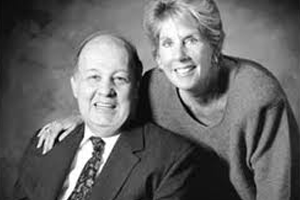
It has been one year since the awful events of December 14, 2012 occurred at Sandy Hook Elementary School in Newtown, Connecticut. One year since a disturbed individual availed himself of the arsenal his mother had legally purchased and shattered families in the little New England town and horrified individuals throughout the country and the world. Reaction was swift (except for the NRA) and all signs pointed to a paradigm shift occurring in the long argued battle over gun rights in America.
However, it proved to be a difficult year, not just for the families forced to endure each holiday or family event without their loved one. Indeed, for these uncounted victims, while they did not lose their lives on that fateful day, they certainly lost the lives they had known and the futures for which they had planned and expected. Daily events, done thousands of times before, took on a new, mechanical air as they searched to redefine “normal.” It is for these people and the loved ones they have lost that many people joined the voices of those calling for change. As I searched for some way to understand the past year’s events, the term “inertia” kept clawing into my mind. And so, using the words of Sir Isaac Newton, I begin:
“Every body perseveres in its state of rest, or of uniform motion in a right line, unless it is compelled to change that state by forces impressed thereon.” Axioms or Laws of Motion, Law I, Mathematical Principles of Natural Philosophy, page 12, Sir Isaac Newton, 5 July 1687
Prior to the multiple, brutal mass shootings of 2012, organizations such as the Brady Campaign To Prevent Gun Violence and its legislative arm the Legal Action Project have been fighting the ever increasingly extremist positions of the NRA in courts across the country securing minor victories against a tide of right wing battles which have resulted in concealed carry becoming legal in all 50 states, open carry laws spreading like spilled blood across the country and stand your ground laws allowing shoot first confrontations to become immune to punishment and rationale to the paranoid. In addition, the NRA has systematically enticed Congress to reduce funding for firearm violence research, rendered impotent the ATF and exempted gun manufacturers from all product liability responsibility; this seismic shift occurring despite the screams of those opposing the proliferation of guns and warning of their inevitable violent toll on society. However, to the general public, raised on and catered to by sound bites and instant gratification, these long-term societal changes went unnoticed.
To use Newton’s terminology, the body (society) persevered in a state of rest (miasmic banality) WHILE it was (quietly) compelled to change that state by forces (NRA) impressed thereon. In effect, while we were distracted by other crises being broadcast 24/7 on cable news, it took the events of 2012 for us to realize not only the playing field had changed, but that we were in the third quarter of a different sport. In doing so, lives were lost, families destroyed and history altered. Shame on us.
“The alteration of motion is ever proportional to the motive force impressed; and is made in the direction of the right line in which that force is impressed.” Axioms or Laws of Motion, Law II, Mathematical Principles of Natural Philosophy, page 12, Sir Isaac Newton, 5 July 1687
Many people began to wake up following the midnight movie theater shooting in Aurora, Colorado on July 20th. Most did not. The momentum created by the murders culminated in prayer vigils, moments of silence and an increase in gun sales across the country, including in Aurora.
Unfortunately, it would take another, even more mind-twisting event to wake the majority of Americans. Only 147 days later, another disturbed individual, armed with a weapon of war, laid bare America as a gun violence dystopia to a disbelieving world. Suddenly, there was an outrage that flashed longer than a prayer filled candlelight vigil, longer than a moment of silence. People from across the country looked directly at the entities responsible for allowing this type of future to unfold: the gun lobby and the elected officials that they owned. Ever aware of their behind the scenes effectiveness and ability to outlast the public, the gun lobby “pleaded” with America not to politicize the tragedy arguing that it was not the right time to discuss legislation when so many families were in immediate pain. Unbelievably, and counter to all rational thinking, the NRA responded by saying the cure for gun violence was more guns. More cancer is not the cure for cancer. Drilling more holes in the bottom of the boat is not the cure for a sinking vessel. Eating more steak is not the cure for heart disease. But according to the NRA, more guns will cure America of its gun violence. Across the country, the sound of gears, springs and cogs could be heard crashing out of the logical brains of rational people.
Over the following months, a groundswell of accidental activists began asking, aloud, what could be done to change our society, to create a future where our children were safe from the hail of bullets in a country awash in firearms. The well-oiled machine that is the gun lobby sent forth their legion of followers with canned arguments too short to fill a bumper sticker and too simplistic to defend. Here, Newton’s second law of motion became evident. The trajectory the gun lobby had set the country upon was being impressed upon with a motive force from the majority of Americans not beholden to a gun metal deity. The new activists credited those who had been fighting all along for their successes and acknowledge, in Newton’s own words that, “If I have seen further it is by standing on the shoulders of Giants.”
“To every Action there is always opposed an equal Reaction: or the mutual actions of two bodies upon each other are always equal, and directed to contrary parts.” Axioms or Laws of Motion, Law III, Mathematical Principles of Natural Philosophy, page 13, Sir Isaac Newton, 5 July 1687
However, as predicted and anticipated by the gun lobby, America’s fickle attention wandered to other crises. Gun safety legislation, considered unassailable in December, sputtered and crashed when the gun lobby reminded Senate Republicans (and a few Democrats in red states) who owned them. And this is when the most amazing part of the story occurred. Those accidental activists demanding gun safety did not fold up their tents and go home. To the chagrin of the gun lobby, the activists absorbed the legislative loss, considered it a learning opportunity and realized that the change they saw as necessary and obvious would not be achieved immediately. It was a marathon, not a sprint. Again, to quote Newton, “Men build too many walls and not enough bridges.”
It was this event, the recognition of the gun safety activists that change would take time, which brings us to the question of whether we will remain in Newton’s third law of motion or see further movement because of his second. Will the opposing forces on the gun issue in America push against each other in a long-term stalemate, or will one side emit enough force to alter the trajectory of this issue?
Rather than demand change from the existing politicians locally and nationally, the activists have begun developing campaigns to elect a legislature more conducive to change. Rather than have a hissy-fit and demand a recall when a vote goes against their wishes, activists have embraced a longer term agenda of electing those who will act in the best interest of society and not the best interest of gun manufacturers. They have also sought to change our communities, not through legislation, but with the pressure of the pocketbook. Corporations are being pressured to provide safe shopping environments for their customers devoid of the testosterone-fueled paranoid shouldering their beloved bazooka.
Interestingly enough, the push back seen by the gun enthusiasts has been in the form of misogynistic berating of activists, the creation of “bleeding” gun targets in the image of the president and female gun safety activists and groups of gun-toting enthusiasts parading through towns and posing outside gun safety activist meetings. Is this the best approach the gun lobby can muster? Evidence suggests that these pedantic actions expose the gun lobby as the far right wing paranoids they are. Attacking ones opponent rather than their position will not win arguments. As Cicero said, “He only employs his passion who can make no use of his reason.”
And so here we are, one year out from the horrors of December 14, 2012. Which of Newton’s laws of motion will prevail? Perhaps Newton himself predicted the outcome when he said, “I can calculate the motion of heavenly bodies but not the madness of people.” May logic overcome vitriol and compassion trump paranoia.






 James Brady died today.
James Brady died today.



 We live in a disposable economy; neither secret nor revelation there! We also live in a society where we, through technology and media, demand instant gratification and are easily bored with work and distracted by shiny objects. It is easier to walk away from a problem than wrestle with it, but seldom right. It is easier to think of oneself rather than another, but rarely without consequence. We eschew effort as well as personal responsibility and popular culture celebrates this behavior. The existentialist will tell you that we are all, in fact, islands; that no one can truly appreciate what we, as individuals, think or feel. At the same time, however, we are all cogs in the various and intricate machinery we know as society.
We live in a disposable economy; neither secret nor revelation there! We also live in a society where we, through technology and media, demand instant gratification and are easily bored with work and distracted by shiny objects. It is easier to walk away from a problem than wrestle with it, but seldom right. It is easier to think of oneself rather than another, but rarely without consequence. We eschew effort as well as personal responsibility and popular culture celebrates this behavior. The existentialist will tell you that we are all, in fact, islands; that no one can truly appreciate what we, as individuals, think or feel. At the same time, however, we are all cogs in the various and intricate machinery we know as society.
